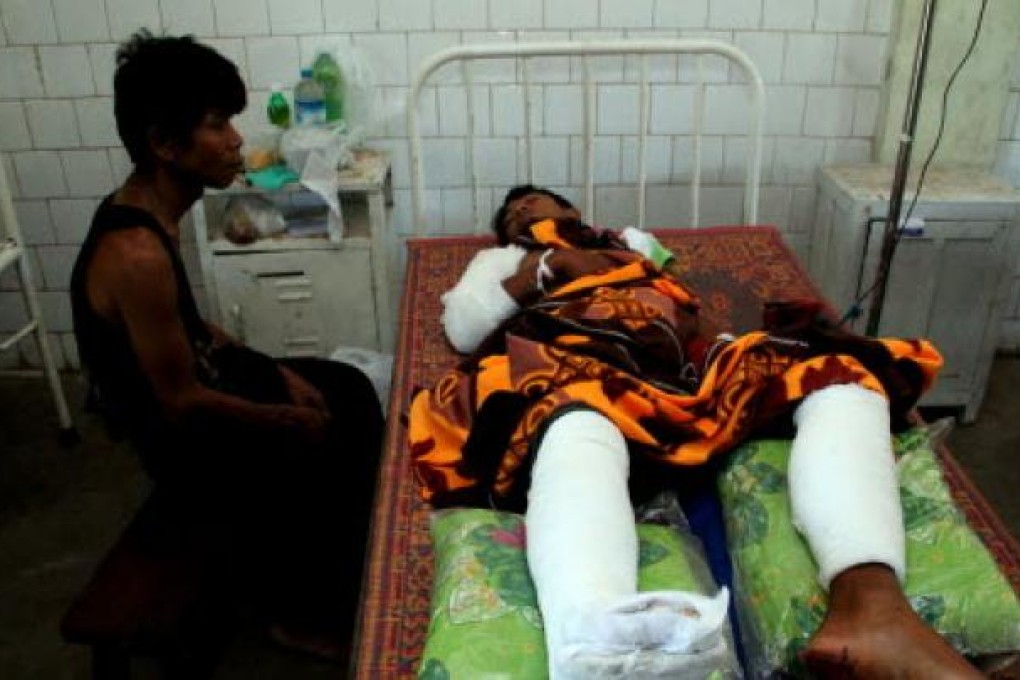
Thousands of displaced people have surged towards already overcrowded camps in western Myanmar, the UN said on Saturday, after vicious new communal violence that has left dozens dead.
Seething resentment between Buddhists and Muslims erupted this week in a wave of fresh unrest in Rakhine state, prompting international warnings that the fighting imperils the nation’s nascent reform process.
The official death toll stood at 67. Roughly half the dead were women, according to a state spokesman, who was unable to provide a casualty breakdown by community.
Tens of thousands of mainly Muslim Rohingya are already crammed into squalid camps around the state capital Sittwe after deadly violence in June and the United Nations on Saturday said the latest fighting had caused a further 3,200 to make their way towards the shelters.
“An additional 2,500 are reportedly on their way,” said Vivian Tan, spokeswoman for the UN’s refugee agency.
Rakhine government spokesman Win Myaing said on Saturday that the situation was now “calm” after security forces were deployed in response to fighting that erupted on October 21, spreading to areas that had been largely untouched by the earlier wave of conflict.